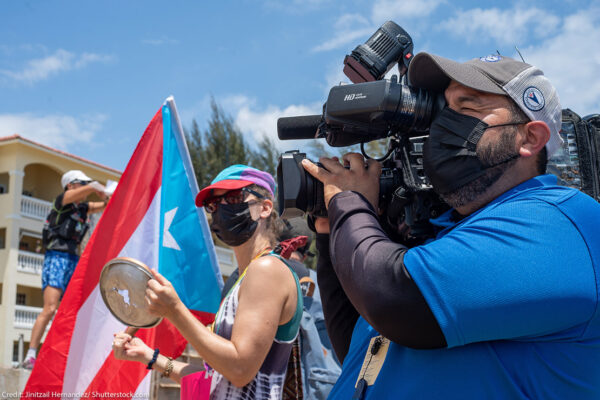ACLU Says Richmond Must Allow Political Sign Opposing New Ballpark
ACLU lawyer argues at Board of Zoning Appeals meeting that city's sign ordinance must be amended or interpreted to allow sign making political statement
FOR IMMEDIATE RELEASE
CONTACT: media@aclu.org
Richmond, VA – According to the ACLU of Virginia, the City of Richmond must either reinterpret its zoning ordinance to allow a large political sign on the side of a business in the Shockoe Bottom area of the city, or it must amend the ordinance to clarify that such signs are permitted.
In either case, Sam Moore's sign reading, "No Stadium in Shockoe: Why Make Developers Rich at Tax Payers Expense," must be allowed to remain.
The City of Richmond's sign ordinance exempts "political campaign or election" signs from size restrictions that apply to most other signs. Moore's sign, which hangs from the Main Street side of his business, Club Velvet, covers 300 square feet. Without the exemption, Moore's sign would have to be cut in half.
Richmond zoning officials have cited Moore for displaying a sign that is larger than the city allows in such circumstances because it is not a "political campaign or election" sign. Representing Moore, ACLU of Virginia Legal Director Rebecca Glenberg yesterday told members of the Board of Zoning Appeals that Moore's sign either falls under the exemption for political campaign signs, or the ordinance unconstitutionally draws a distinction between campaign signs and other signs that express a political viewpoint.
"Richmond can have a sign ordinance that treats commercial signs differently from noncommercial signs, or that draws distinctions between signs in residential areas and signs in business districts," said ACLU of Virginia Executive Director Kent Willis. "It can even, within reason, regulate the size of signs."
"However," Willis added, "the City can't say that large signs supporting a candidate for office are allowed but that large signs making a political statement are not. That kind of content discrimination violates the free speech clause of the First Amendment."
After hearing Glenberg's arguments yesterday, the Board of Zoning Appeals decided to put off making a decision until May 6 to give Zoning Administrator William C. Davidson an opportunity to review the ordinance in light of the ACLU's arguments.


